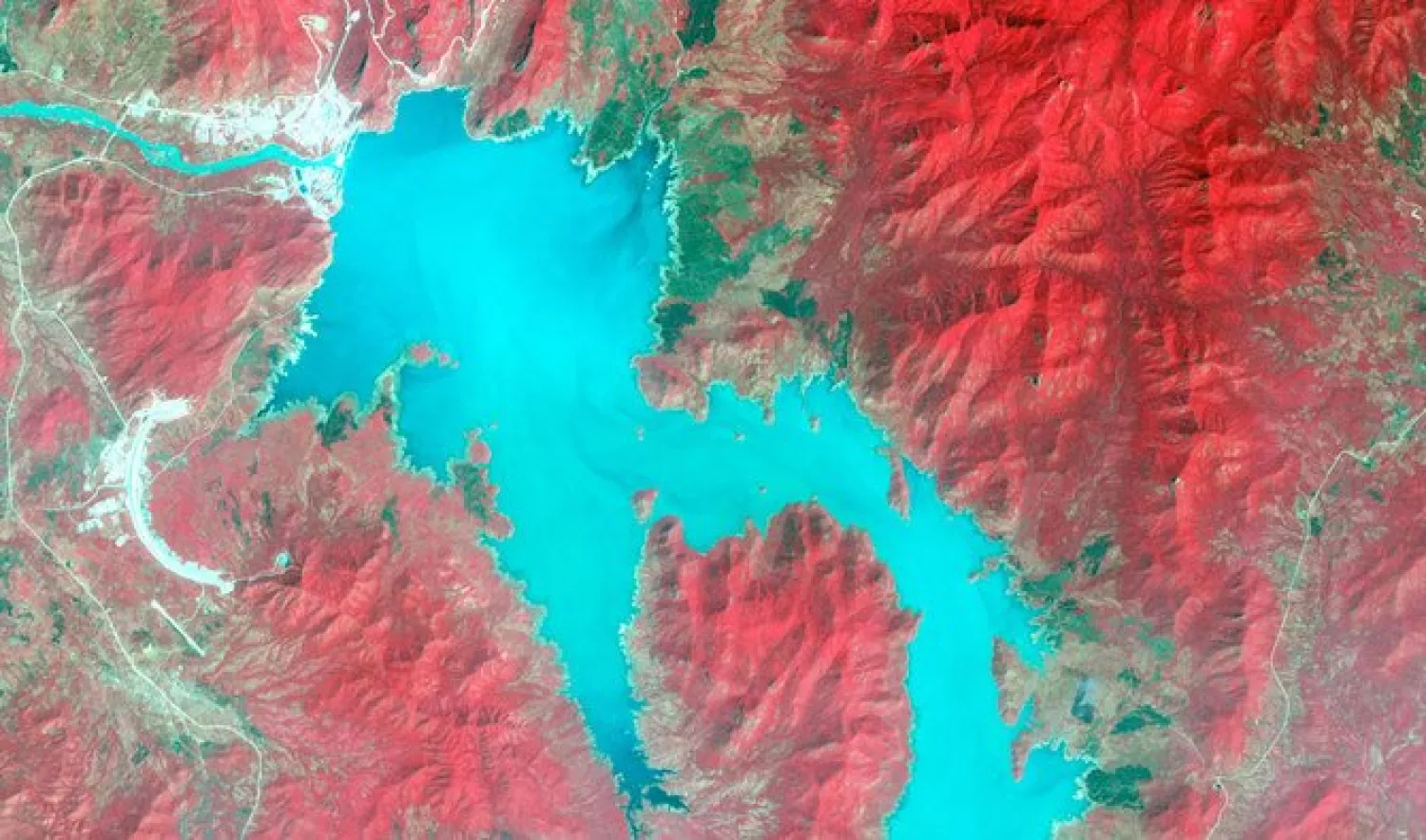The Egyptian president held talks on Thursday with his counterpart in Djibouti as part of Egyptian diplomatic attempts to build more African alliances amid an ongoing water dispute with Ethiopia.
Abdel Fattah el-Sissi's visit to the Horn of Africa nation is the first by an Egyptian president since Djibouti declared independence in 1977.
El-Sissi and Djibouti’s President Ismail Omar Guelleh agreed that the Ethiopian dam should be filled and operated according to “a fair and binding legal agreement” that could maintain regional stability and preserve the interests of all parties, el-Sissi’s office said in a statement.
El-Sissi and Guella also stressed their “strategic partnership” on fighting terror in the Horn of Africa and underscored their cooperation over security issues in the Red Sea and the Bab el-Mandeb Strait, said the statement.
The visit comes amid mounting tension between Egypt and Sudan on one hand and Ethiopia on the other, over Ethiopia’s $4.6 billion Grand Ethiopian Renaissance Dam on the Blue Nile, a main tributary of the Nile River, The Associated Press reported.
Egypt and Sudan fear that the Ethiopian reservoir would affect their water shares, especially in times of drought.
Amani el-Taweel, an expert on Africa at Egypt’s Al-Ahram Center for Political and Strategic Studies, said that a “rapprochement between Egypt and Djibouti is crucial" in order to “prevent Djibouti from taking Ethiopia’s side.”
“Lately, Egypt has been seeking to build good relations with all Nile Basin countries and countries overlooking the Red Sea," she said.
“Such two regions have to do with Egypt's two most important national security issues, including the Nile River and the Suez Canal.”
Nile dispute talks with Ethiopia stalled in April; international and regional efforts have since tried to revive the negotiations without success.
In March, el-Sissi warned Egypt's share of the Nile was “untouchable” and that there would be “instability that no one can imagine” if Ethiopia fills the reservoir without an international agreement.
Egypt and Sudan argue that Ethiopia’s plan to add 13.5 billion cubic meters of water in 2021 to the dam’s reservoir is a threat to them.
Egypt has been seeking a legally binding agreement that would spell out how the dam is operated and filled, based on international law and norms governing cross-border rivers.
On Monday, President Joe Biden acknowledged Egypt’s concerns about access to Nile water and stressed his administration’s interest in reaching “a diplomatic resolution.”
Egypt relies on the Nile for more than 90% of its water supplies. Ethiopia says the $5 billion dam is essential, and that the vast majority of its population lacks electricity. Sudan wants Ethiopia to coordinate on the dam’s operation to protect its own power-generating dams on the Blue Nile.
The Blue Nile meets the White Nile in Khartoum, before winding northward through Egypt into the Mediterranean Sea.









